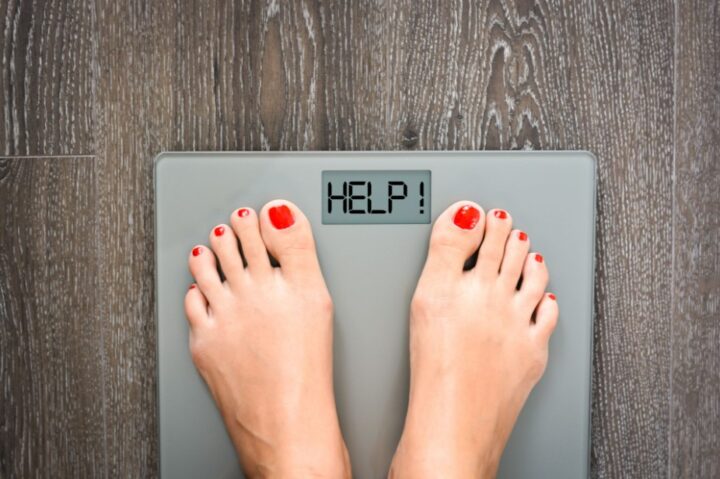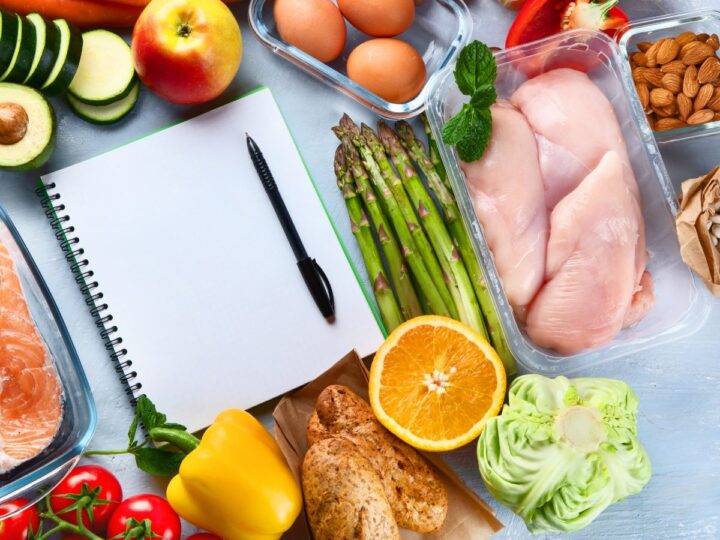Are you undergoing trouble doing your essential daily duties or simply feeling uneasy? Then it’s time to get started on a nutritious weight loss plan. This epidemic has put a few inches to several of our waistlines, the new routine of working from home. Our fitness has worsened due to the new inactive lifestyle, which includes sitting for hours, attending online meetings, emotional eating, and snacking on our favorite foods. But, as the phrase goes, it is never too late to go from an unhealthy to a healthy lifestyle. A short desire, commitment, and consistency may help you lose weight quickly and easily.
We’ve all attended to the essentials of a weight reduction plan: exercise regularly, eliminate junk food, decrease calories, and so on. Are you still having trouble losing weight while following a tight diet? If this is the case, you are executing weight loss blunders that delay your success. Unfortunately, these weight loss errors are so regular that we aren’t even aware of how they impair our fitness objectives.
Skipping Meal
Another prominent crash diet practice is to miss important meals such as breakfast, lunch, and supper. It is ineffective and may even harm your health. If you ignore breakfast and suppress your appetite, you may overeat at lunch. Staying hungry can sometimes cause gastrointestinal troubles, adding to your worries. Instead, organize your meals so that you eat in small quantities and complete your meals on time. It is how you keep healthy and fit for sports.
Managing Stress
Stress is a natural part of life, but too much stress might hinder you from losing weight. Worse, even if you eat well and exercise often, you may still gain a few pounds. When you are anxious, your brain urges your cells to release cortisol, a hormone that causes you to crave sweet and high-fat foods. The surge in adrenaline caused by stress eventually leads to adrenal fatigue, which causes your body to store more fat. It leads to weight gain simultaneously. It is impossible to eliminate all worry and tension. You can, however, regulate your stress to maintain healthy cortisol levels and weight. To alleviate stress, use relaxation techniques such as meditation and deep breathing.

Putting too much emphasis on aerobics
Concerning weight loss, there is a perfectly commonplace erroneous perception. Women, in particular, believe that the most efficient way to lose weight is to increase their cardiovascular activity, such as jogging. What else do our amazing success stories have in an unexpected place? When it is their exercise, they concentrate on being strong and well-conditioned. No, they did not get huge and “bulky.” They built incredible strength, fitness, endurance, and confidence while also losing weight!
You consume your energy
Sugary fruit juices, cola, calorie-reduced smoothies, and meal replacement beverages might cause weight gain. The fact that you are no longer chewing anything does not mean that the energy does not count. For example, a can of coke contains 150 calories and 39 grams of sugar, and if you drink it with a slice of pizza, you may easily consume more than 500 calories in a single meal. Water is always your best option, and staying hydrated will help you regulate your appetite and recognize hunger cues.
Stick to short-term targets
Losing weight isn’t crucial; keeping it off in the long run is. As a result, many people recover most of their lost weight. As a result, we believe it is critical to maintain consistency throughout the weight reduction process and to set long-term goals. Concentrate on creating a lifestyle shift. It will aid in good food and exercise routines that will provide significant long-term advantages.

Consume Fiber
Many weight reduction programs advise you to avoid carbs. The majority of carbohydrate-rich meals are high in fiber. Fiber can be marketed as worthless, although this is incorrect – read more at health reporter about ColonBroom review and about fiber supplements. It is critical for the proper functioning of our digestive system. It also keeps us feeling fuller for longer. Choose whole grains, fruits, and vegetables as healthier, less-processed, high-fiber meals.
Excessive physical activity
Exercise is unquestionably vital in the weight loss process. A typical error is over exercising and not living a healthy lifestyle. A healthy lifestyle involves eating mindfully, consuming less processed food, and getting adequate sleep. Exercising for hours will not provide favorable benefits.
No snack at all
While mindful snacking might help you lose weight, random munching can have the opposite effect. People who consume a variety of modest meals and snacks throughout the day are more likely to regulate their appetite and lose weight. Snacks help to maintain metabolism, especially if they are heavy in protein. Eating nuts is a high-protein alternative, and studies show that those who consume nuts are thinner than those who do not.

Inadequate protein intake
We think a high-protein diet is only necessary if we get working out at the gym when trying to lose weight. A diet high in protein is recommended for all other types of weight loss journeys though it is necessary for those who go to the gym. We get energy from protein, which also increases metabolism and improves the health of our muscles.
Not Getting Enough Sleep
The cause of your weight gain may be sleep deprivation, even if you exercise frequently and adhere to a strict diet. One of the most common mistakes people make when attempting to lose weight is neglecting to get enough sleep.
Hormonal levels and sleep quality are related. Lack of sleep causes the hormone cortisol, which encourages fat storage, to get secreted at a higher rate. Leptin and ghrelin, the two vital hormones that control hunger, may also fluctuate. It also out that more studies were required to comprehend the mechanisms by which the amount of sleep.
Not getting enough water
The body frequently conflates hunger and dehydration. The sensation of thirst and hunger gets mixed up. Due to this, eating is unnecessary. However, getting enough water can speed up your weight reduction process. Increased blood flow, metabolism, energy levels, and other variables are all boosted by water.




